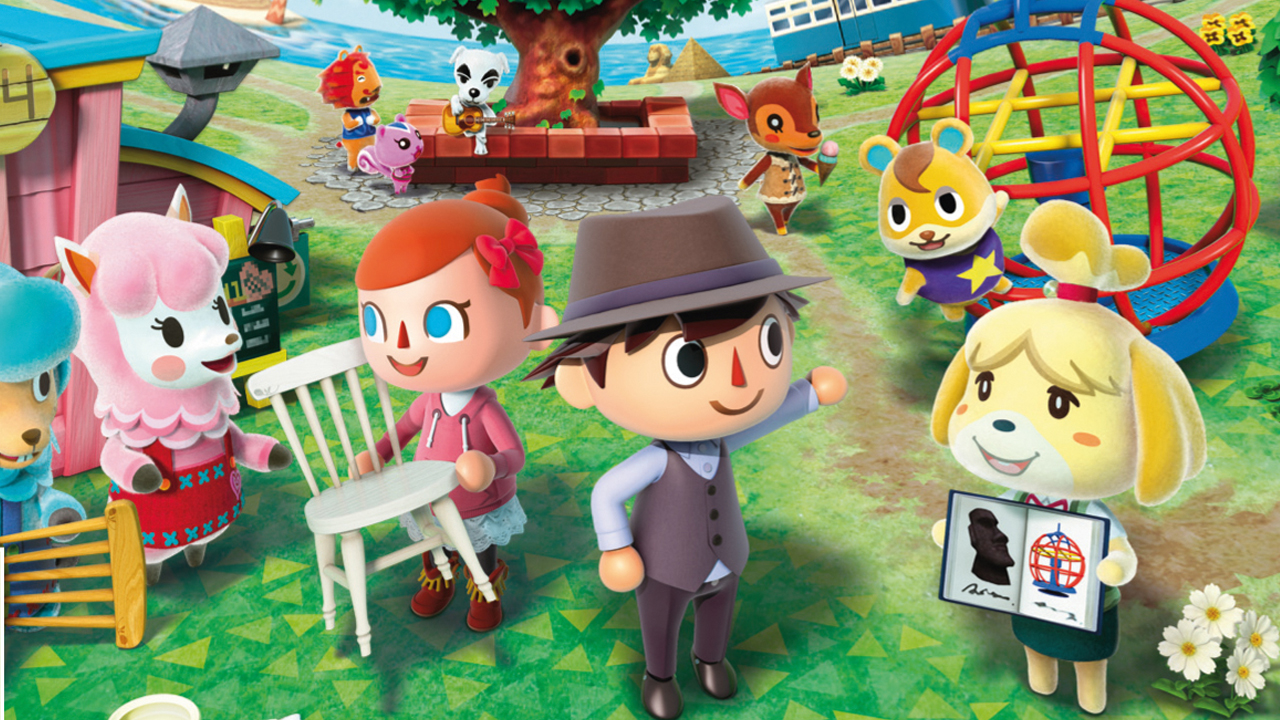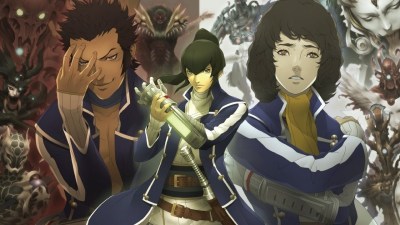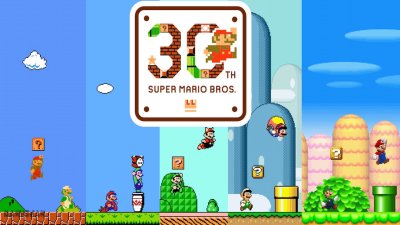After initially being promised the 3DS installment of Animal Crossing as a launch title, fans patiently waited for redemption for the underwhelming experience that was Animal Crossing: City Folk. Thankfully, Animal Crossing: New Leaf is the most well-executed game in the series since the GameCube’s classic original.
As a concept, Animal Crossing: New Leaf sounds nothing short of mundane. This time around, you’re the mayor of your town, but it features much of the same game play that characterized its predecessors: catching fish, making friends (and enemies) with the townsfolk, pinching pennies in order to pay off your enormous housing debt. Yet, after actually sitting down and spending some time with the latest installment in the Animal Crossing series, we found it to be one of the most gratifying and engrossing videogames we’ve ever played.
Every game in the series has brought something new to the table - in Wild World, you were able to visit towns of people across the world and in City Folk, you had a whole urban plaza to do your shopping in. In New Leaf, you’re not only a citizen of your town, but the mayor. As the leading politician, you have the power to do two things: spearhead public works projects, and set ordinances.
Public works projects allow your town to reach peaks of individuality unheard of in the Animal Crossing series. In previous games, your town was defined by its physical geography and the animals that lived there. Barring some strategic flower planting and the tedious laying down of patterns, these factors were out of your control. Now as mayor, you have, to an extent, the ability to tailor the town to your tastes. You can build landmarks with actual functional utility like the police station and different kinds of bridges (which is particularly nice if you weren’t blessed with an ideal town layout) and landmarks that are pretty much just for show like street signs and public art.
Historically, if you wanted to play Animal Crossing - and never wanted to mess with the in-game clock - real-life could act as a serious impediment to that ambition. If you found yourself suddenly faced with a new schedule that prevented you from playing until late at night, you were doomed to miss out on focal points of the Animal Crossing experiences. By the time you were on the sofa, gaming device in hand, the shops would be closed and the majority of your townsfolk would be hitting the hay. Additionally, if you wanted a spectacular garden, anything that would stop you from tending to it daily would seriously undermine your progress; flowers would wilt and die, and weeds would become abundant.
This is where New Leaf’s four ordinances come in handy. They are, by design, accommodations to players’ schedules in the form of mayoral power. You can dictate when stores open and close (and the villagers’ sleeping schedules will adjust accordingly) with the Early Bird and Night Owl ordinances, or you can set the Beautiful Town ordinance, and make weeds pop up less frequently and give your flowers immortal life. There’s also the Bell Boom ordinance, which essentially causes inflation, catering to wealthy players who wish to be even wealthier.
Nintendo has never been a company known for giving their games strong online capabilities. While New Leaf’s online is tragically bogged down by Nintendo’s trademark friend code system, the gameplay itself is well designed. Visiting others’ towns or having them come over to see what you’ve done with the place is easier than ever. You can register people as “Best Friends”, enabling you to see their online status and chat with them even when you’re not in the same town. Gone are the days of needing to organize visits through forums - you can now do it all right from your handheld.
One of the biggest supplements to the online experience is the Dream Suite. Upon flexing your mayoral muscles and building the Dream Suite, you can use it to access the Dream World. In the Dream World, you can visit offline versions of your friends’ towns using a twelve digit code. You can even visit strangers’ towns and homes through the use of an in-game search engine, and explore the homes of anyone you’ve met through Street Pass. In a game where individual design is heightened, the easy access to towns across the world is a welcome addition.
And what would an Animal Crossing game be without a stellar cast of lovable animals? One of the centerpieces of the Animal Crossing series, and something that continues to be a highlight in New Leaf, is the roster of lovable animals. The residents of your town can take on one of eight different archetypes and the dialogue options are plentiful and well written. Returning to the cast is everybody’s favorite real-estate tycoon/loan-shark Tom Nook with his voracious appetite for whatever’s in your bank account. Resetti is back and more irate than ever, and Kapp’n returns to the sea for the first time since 2002, and will sing you to sleep as you sail towards the tropical island off the coast of your chunk of land. The conversations you’ll have with these folks will make you smile, or even laugh, and are constant reminders of what makes New Leaf so special.
At its core, New Leaf is not a dramatic departure from the games that came before it. Much of your activity is going to be similar to what fans of the series have been doing for over a decade - making Bells by catching wildlife and doing fetch quests for your pals, immaculately decorating your abode, expanding your wardrobe and looking for the perfect fit. And, of course, all of this is done to the tune of original music that changes every hour, on the hour. Perhaps the single unwelcome returning feature is the ever-nebulous desertification, where walking on grass will eventually cause it to deteriorate. It is significantly easier to manage your town in New Leaf than it was in City Folk, but the ceaseless deterioration of your surroundings adds an element of stress to a game that doesn’t really call for it.
Whether you play for five minutes or five hours, Animal Crossing: New Leaf manages to be a rewarding experience. As the game progresses, you’ll find yourself caring more and more about the place you and your townsfolk call home. It’s possible that you’ll find yourself playing on a daily basis for months - not out of an obsessive need for upkeep, but because you’ll legitimately want to complete the museum’s dinosaur collection and become better friends with Gonzo the cranky koala. Everything you do, and every discovery you make feels significant, and for that, New Leaf is an incredible gaming experience that ought not be missed by anyone willing to let themselves become immersed in it.



